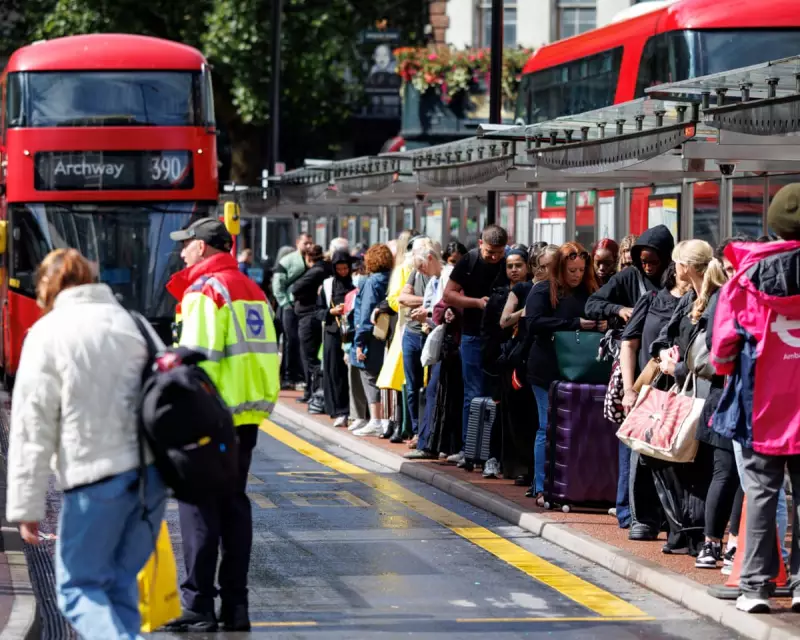
A massive 48-hour strike by London Underground drivers has brought the capital to a standstill, with union leaders claiming the widespread disruption has forcefully "proved a point" to Transport for London (TfL) and City Hall.
The walkout, which began on Thursday morning, saw the near-total shutdown of the Tube network, leaving millions of commuters facing lengthy delays, overcrowded buses, and gridlocked roads. The action was called by the RMT and Aslef unions in a long-running dispute over staffing levels and working practices.
A Capital Brought to Its Knees
The impact was immediate and severe. Key central London stations were closed or operating with minimal service. Major interchanges like King's Cross and Waterloo became choke points as passengers sought alternative routes. Bus stops saw queues stretching for hundreds of metres, while cycle hire schemes reported a surge in usage and traffic congestion soared.
One frustrated commuter described the scene as "absolute chaos", while a business owner expressed concern over the economic impact of employees being unable to get to work.
The Union's 'Proven Point'
At the heart of the dispute are union demands for a formal agreement on minimum staffing levels and the reversal of what they label as "managerial overreach". The RMT argues that current practices are unsustainable and compromise both staff welfare and passenger safety.
The sheer scale of the disruption has lent weight to their argument. A source close to the negotiations suggested that the effectiveness of the strike had indeed demonstrated the Tube network's critical dependence on its drivers, forcing TfL back to the bargaining table.
TfL's Response and the Road Ahead
In a statement, a TfL spokesperson acknowledged the severe impact and urged the unions to continue talks, stating: "We encourage the RMT and Aslef to engage with us to find a resolution and avoid further unnecessary disruption for Londoners."
With the strike demonstrating the unions' powerful leverage, all eyes are now on the negotiation process. The pressure is on for both sides to reach an agreement before any further planned industrial action can be called, as Londoners hope for a swift end to the travel misery.





